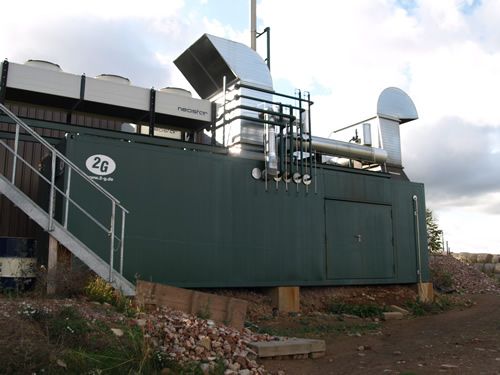
A pioneering clean energy plant using anaerobic digestion is being launched by local MP Simon Reevell. The 400kW capacity plant, at Clayton Hall Farm, near Emley, West Yorkshire, will generate enough electricity to power 650 homes and will be the first in West Yorkshire to use both energy crops and food waste to generate electricity. It will save an estimated 3,300 tonnes of CO2 and will process around 2,000 tonnes of food waste every year.
Anaerobic digestion works by breaking down organic matter – crops, animal slurries or food waste – into biogas, which is then combusted in a combined heat and power plant to produce electricity and heat. AD offers a method of not only producing clean electricity, but also helps divert food waste from landfill.
Neil Gemmel, from Clayton Hall Farm, began the development in 2008. He said, "The launch of the plant is the result of five years’ hard work and we are delighted that it is now generating clean electricity. The plant is extremely efficient, using a mixture of crops and food waste that would otherwise have been sent to landfill. The digestate produced as a by-product of the plant is an excellent fertiliser and will be used on our farm as an alternative to artificial fertilisers. With help from CO2Sense, the plant has become a great success for the farm."
CO2Sense, the not-for-profit low carbon experts, invested £600,000 in the plant and also gave technical advice to help with planning and development. Joanne Pollard, Chief Executive of CO2Sense, said, "CO2Sense is pleased to have been able to invest in this pioneering development, which will provide a significant amount of renewable energy and an alternative to sending food waste to landfill. Innovative alternatives to using fossil fuels for energy, such as the AD plant we are launching today, are essential in helping the low carbon economy in the UK develop. Renewable energy offers opportunities for new income streams from the feed-in-tariff, as well as the creation of new jobs and businesses."
Investments from CO2Sense are re-paid once plants are operational and generating an income. CO2Sense then re-invests in other renewable energy developments. To date, CO2Sense have invested in 6% of the renewable energy capacity in Yorkshire.
